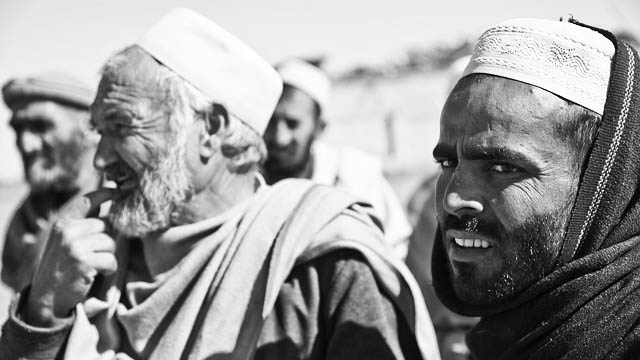The Taliban’s victory in Afghanistan has occupied global media’s headlines. The land-locked South Asian country is experiencing another major exodus of refugees as many, especially the supporters of the collapsed American puppet regime, fear the Taliban’s vengeance due to its past record of similar atrocities against opponents. Amid this kerfuffle and sheer chaos, COVID-19 cases may spike, jeopardising public health in the impoverished country where—so far—152,142 cases have been recorded and 7,025 people lost their lives. Moreover, with the Taliban’s victory, Afghanistan’s COVID-19 vaccination programme can suffer immensely as the west may impose sanctions on the country.
Afghanistan’s COVID-19 vaccination programme started from April 16th 2021, targeting those above 18 years of age. Initially, the vaccination started with Oxford-AstraZeneca jabs. By August 16th, the country of 39m has vaccinated only 1.8m people. Frontline workers, government workers, nomads and people above 50 were given priority in the vaccination drive. However, with the Taliban’s victory, uncertainty looms over the future of the programme as Afghanistan heavily depends on the COVAX scheme started globally for low and middle-income countries for vaccines.
Despite their previous hostility towards vaccination, especially polio vaccination, the Taliban insurgents backed the COVID-19 vaccination programme and even helped the erstwhile government’s vaccination drive in areas held by it. Earlier, in April 2020, the Taliban took effective steps to control the COVID-19 pandemic in areas held by it.
The Taliban took a few steps to control the COVID-19 menace, including declaring a ceasefire with the former government, giving permission to health workers to work in their areas, conducting covid awareness and public health workshops, providing medical equipment to the public and setting up quarantine centres for covid positive people. The Taliban also imposed social distancing norms, banned religious or other gatherings and asked the people to pray in their homes rather than visiting mosques.
In 2020, when Iran was experiencing a peak of COVID-19 cases, the Taliban made it mandatory for all travellers from Iran to undergo a mandatory 14-day-long home quarantine, irrespective of symptoms. Rather than a genuine change of heart, the Taliban’s surprising endeavours regarding the pandemic and Afghanistan’s COVID-19 vaccination programme indicate furtive opportunism, as the organisation is trying hard to shed its erstwhile parochial image.
The Taliban fighters had their share of COVID-19 agony as many of their top leaders fell sick. The Taliban understood the importance of containing the COVID-19 pandemic in Afghanistan as it feared a leadership vacuum in case the virus takes a toll on its leadership. This pragmatism forced it to take part in Afghanistan’s COVID-19 vaccination programme. However, so far, neither its spokesperson Suhail Shaheen nor its political chief Mullah Abdullah Ghani Baradar disclosed how the new Taliban government—Islamic Emirate—shall deal with Afghanistan’s COVID-19 vaccination programme.
Sole dependence on the COVAX programme funded by western imperialist powers makes Afghanistan vulnerable. In case the US, the UK and their allies impose a tight sanction on Taliban-ruled Afghanistan, then the Taliban must depend on China’s Sinopharm vaccine and Russia’s Sputnik V. However, whether Beijing and Moscow will dare to bypass western sanctions to support Afghanistan’s COVID-19 vaccination programme is still not clear.
In case the international sanctions choke Afghanistan’s COVID-19 vaccination programme, then it will aggravate the public health crisis in the country. So far, none of the COVID-19 vaccines approved by the World Health Organization (WHO) has shown efficacy against the Delta variant of the SARS-CoV-2. Even in countries like the US and the UK, the pandemic is uncontrollable due to the Delta variant’s rage.
How can a country like Afghanistan—with non-existent public healthcare infrastructure— manage a major outbreak of the pandemic, especially when thousands are running amok with their families in their bid to escape the Taliban’s rule? How can the WHO’s covid guidelines be followed in such a situation? Can the western imperialists, in their bid to punish the Taliban, allow Afghanistan’s COVID-19 vaccination programme to go astray, pushing millions towards death?
At a time, when a major humanitarian crisis is manifesting itself in the South Asian country, as thousands turn into war refugees, it’s time for the western powers, who have killed thousands in Afghanistan in the last 20 years using random bombing campaigns or brutal military assaults, to check whether they will jeopardise Afghanistan’s COVID-19 vaccination programme or will help the country’s new government to contain the pandemic. Their decision will decide the future course of Afghanistan’s fight against COVID-19.
Unsigned articles of People's Review are fruit of the collective wisdom of their writers and the editors; these articles provide ultimate insight into politics, economy, society and world affairs. The editorial freedom enjoyed by the unsigned articles are unmatchable. For any assistance, send an email to write2us@peoplesreview.in

